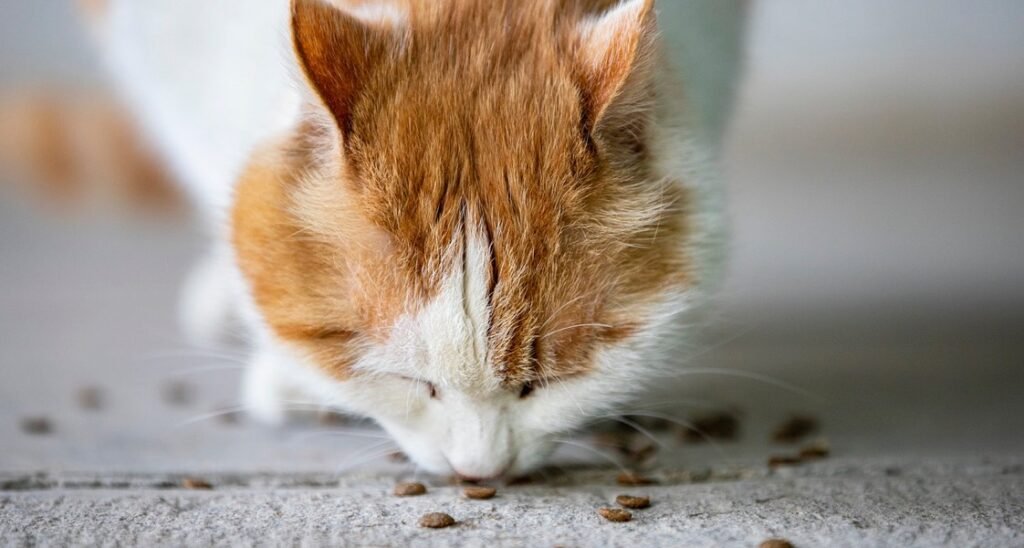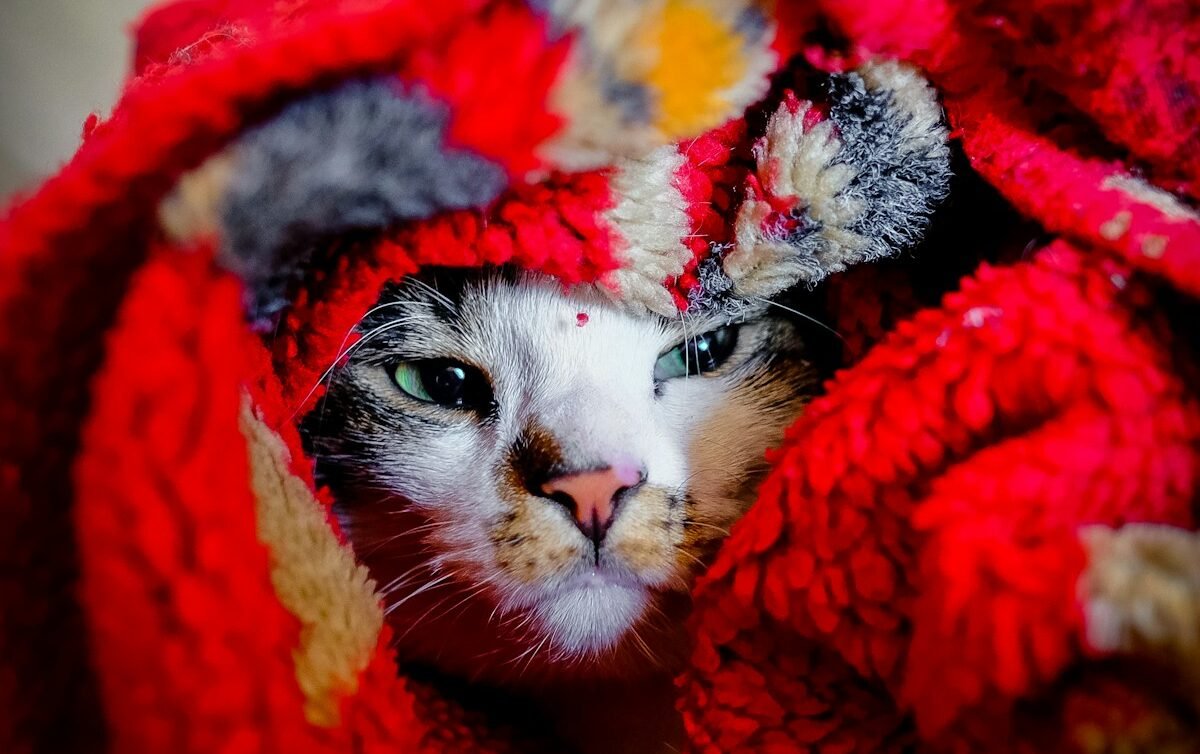Are you stressed, wondering “Why Is My Cat Not Eating?”A sudden or prolonged lack of appetite in cats can be distressing for pet owners. While cats are known to be finicky eaters, there are many potential reasons behind a cat’s refusal to eat, ranging from minor issues to serious health concerns. Understanding these reasons and knowing how to address them can help ensure your feline friend stays healthy and happy.
Common Causes for Loss of Appetite
Change in Food Brand or Type
Sensitivity to New Foods: Cats are creatures of habit and can be very particular about their food. A sudden change in the brand, flavor, or texture of their food can cause them to refuse to eat. Cats may reject new food due to unfamiliarity or simply because they do not like the taste or smell.
Tips: If you need to change their food, do so gradually by mixing the new food with the old. This helps your cat adjust to the new taste and reduces the chance of gastrointestinal upset.
Hygiene and Freshness of Food
Sensitivity to Stale Food: Cats are highly sensitive to the freshness of their food. Stale or spoiled food can be unappealing, and a dirty feeding bowl can deter them from eating.
Tips: Always provide fresh food and clean your cat’s bowls regularly. Ensure that their water is also clean and fresh, as cats may refuse to drink stale water.
Routine Changes
Disruption in Consistency: Cats thrive on routine, and any changes in their daily schedule, such as feeding times or the introduction of new pets or people, can cause stress and lead to a decreased appetite.
Tips: Maintain a consistent routine and environment. If changes are unavoidable, try to introduce them gradually to give your cat time to adjust.
Stress and Anxiety
Environmental Stressors: Loud noises, new pets, new people, or other disruptions in their environment can make cats anxious, leading to a loss of appetite.
Tips: Create a calm and secure environment for your cat. Using pheromone sprays or diffusers can help reduce stress. Provide plenty of playtime and interaction to help your cat feel more secure.
Dental Problems
Pain from Oral Issues: Pain from tooth decay, gum disease, or oral injuries can make eating painful for cats.
More on Feline Dental Disease By Cornell University College of Veterinary Medicine
Tips: Regular dental check-ups and maintaining dental hygiene are crucial. If you notice your cat pawing at their mouth, drooling, or showing other signs of oral discomfort, consult your veterinarian.
Gastrointestinal Issues
Digestive Distress: Conditions like inflammatory bowel disease, pancreatitis, or obstructions in the digestive tract can cause nausea and a loss of appetite. Read more about common GI issues in This Article by PetMD.
Tips: Monitor your cat for additional symptoms like vomiting or diarrhea. If these symptoms are present, seek veterinary care immediately.
Kidney Disease
Chronic Illness: Particularly common in older cats, kidney disease can cause nausea and decreased appetite. Symptoms may include increased drinking and urination. To learn more about kidney disease in felines, read about Chronic Kidney Disease by Cornell University College of Veterinary Medicine
Tips: Regular veterinary check-ups are essential to catch and manage kidney disease early. Your vet may recommend a special diet to support kidney health.
Infections
Upper Respiratory Infections: Infections can impair a cat’s sense of smell, making food less appealing. Conditions like feline herpesvirus or calicivirus can affect the upper respiratory tract and lead to a loss of appetite.
Tips: Ensure your cat is up-to-date with vaccinations and seek veterinary care if you suspect an infection. Antibiotics or other treatments may be necessary to help your cat recover.
Signs to Watch For

If your cat is not eating, it’s essential to monitor them closely for additional symptoms that might indicate a more serious issue:
- Lethargy: Reduced activity or interest in usual activities can be a sign of underlying health problems.
- Hiding: Seeking seclusion or avoiding social interactions might indicate that your cat is feeling unwell or stressed.
- Weight Loss: Noticeable decrease in body weight over a short period.
- Vomiting or Diarrhea: Indicative of gastrointestinal issues.
- Bad Breath: Can signal dental problems or other health concerns.
Home Remedies to Encourage Eating
If your cat’s loss of appetite isn’t linked to a serious health issue, you can try several home remedies to encourage them to eat:
Enhance the Food’s Aroma
Warm the Food: Slightly warming wet food can enhance its aroma and make it more appealing to cats.
Add Tuna Juice or Chicken Broth: Adding a small amount of tuna juice (packed in water) or low-sodium chicken broth can entice your cat to eat.
Try Different Food Textures
Mix Wet and Dry Food: Combining different textures, such as mixing wet and dry food, can make meals more interesting for your cat (Vet Ranch) (lovecats.org).
Offer Different Flavors: Experiment with different flavors and brands to find what your cat prefers.
Provide a Calm Eating Environment
Quiet and Safe Space: Ensure your cat’s eating area is quiet and free from stressors. Consider using a separate room if there are disruptions in the house (21Cats) (lovecats.org).
Reduce Stress: Use pheromone diffusers or sprays to create a calming environment. Interactive playtime can also help reduce anxiety (21Cats).
Stimulate Appetite with Treats
Offer Small Treats: Sometimes, offering a favorite treat can stimulate your cat’s appetite. Be careful not to overdo it, as treats should not replace a balanced diet.
Use Catnip: Some cats respond positively to catnip, which can help stimulate their appetite.
Ensure Fresh Water Supply
Fresh and Clean Water: Regularly change your cat’s water to ensure it is fresh. Cats prefer cool, clean water and may refuse to drink stale or dirty water.
When to See a Vet?
If your cat has not eaten for more than 24 hours, it’s crucial to consult with a veterinarian immediately. Prolonged lack of food can lead to severe health issues, including hepatic lipidosis, a potentially life-threatening condition.
Conclusion
While a cat’s refusal to eat can stem from minor issues like disliking new food or environmental changes, it can also signal serious health problems. Observing your cat closely and maintaining a consistent, stress-free environment can help address some common causes. However, prolonged appetite loss warrants a visit to the veterinarian to ensure your cat’s health and well-being.

